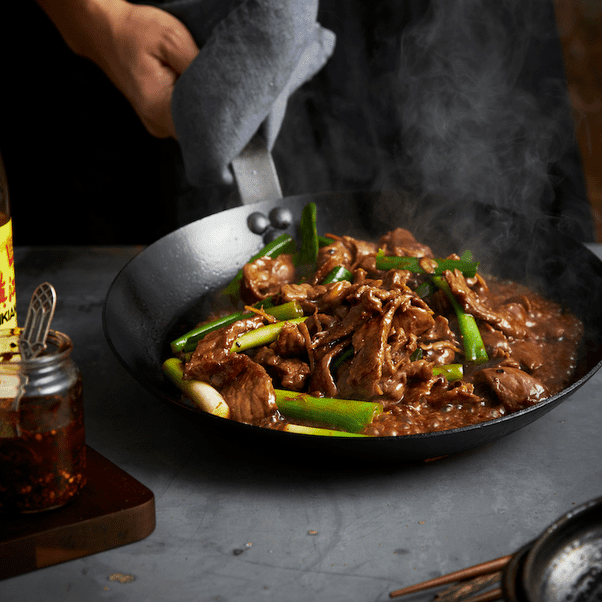Marinating is the process of soaking food in a flavorful liquid mixture containing an acid component, such as vinegar, lemon juice, or wine, spices, herbs, and seasonings. Marination makes food tender, juicy, and flavorful. It also helps to lock in moisture, adds tang to the food and can have safety benefits. A good marinade must contain an acid component such as vinegar, oil (to help retain moisture), spices, and herbs to enhance the flavor. Marinating time varies, depending on the item being cooked, the cut, size, and how strong the marinade is. The cooked meat or seafood must always be allowed to come to room temperature for 30 minutes before cooking.
Marinating Magic: Maximizing Flavor and Tenderness in Your Meals
Marinating is a popular culinary technique that involves soaking meat, fish, or vegetables in a flavorful liquid mixture to enhance taste and texture. Marination allows for the infusion of flavors into the food, improving its taste, aroma, and tenderness. Whether you’re a beginner in the kitchen or an experienced home cook, proper marinating techniques can take your cooking to the next level. In this article, we will discuss the basics of marinating, tips, and tricks to help you maximize flavors and tenderness in your meals.
What is Marinating?
Marination is the process of soaking food in a flavorful liquid mixture, usually made of oil, acid, spices, herbs, and seasonings. The acidic component, such as vinegar, lemon juice, or wine, begins to break down the proteins in the food, making it tender and juicy. The oil component helps keep the food from drying out while cooking, while the herbs, spices, and seasonings add flavor complexity.
The Benefits of Marinating
Marinating has a lot of benefits for your dishes, and it’s worth taking the time to marinate your food items. Here are some of the benefits of marinating:
– Flavor Infusion: By adding herbs, spices, vinegar, or oil to your marinade, you can enhance the natural flavor of the food.
– Tenderizing: The acid in the marinade penetrates the food, breaking down the tough fibers in the meat, fish, or veggies, making them tender.
– Moisturizing: The oil in the marinade helps lock in moisture in the food, keeping it juicy and flavorful.
– Safety: The marination process can also have some safety benefits as the acid component in the marinade can help kill potentially harmful bacteria.
Tips and Tricks for Marinating
Follow the tips below to ensure that your marination process is successful in creating a delightful end product.
Choose the Right Marinade:
The choice of your marinade affects the overall quality of your dish. You can buy marinades at the store or make it yourself. If making it yourself, consider the following:
– Acids: A good marinade must contain an acid component such as vinegar, lemon juice, or wine. Acids help to tenderize the food and also add tang to the food.
– Oil: Oil is essential in marinating; it helps the food retain its moisture while cooking. Olive oil, vegetable oil, or any mild-tasting oil works well.
– Spices and Herbs: These are the flavors that will make your marinate more unique. Use a blend of dried herbs, fresh herbs, garlic, ginger, and other seasonings to create your desired flavor combination.
– Salt: Salt helps to penetrate the meat, fish, or veggies and bring out the natural flavors.
Marinating Time:
Marinating time varies depending on the item you’re cooking, the cut, size, and how strong the marinade is. Here are some general rules to keep in mind:
– Fish or Seafood: Marinade time should be 15 to 30 minutes.
– Poultry: Marinade time should be 2 to 12 hours, depending on the size of the chicken pieces.
– Beef, Pork, and Lamb: Marinade time can range from 2 hours to 24 hours, depending on the cut and thickness.
Storage:
When marinating food, it’s essential to store it properly, preventing contamination or spoilage. Here are some tips:
– Place the marinade and the food in a zip-top or resealable bag, ensuring that the liquid coats the food evenly.
– Refrigerate the bag and turn it occasionally, so the food gets coated evenly.
– Don’t reuse the marinade after it has touched raw meat or seafood.
Cooking:
Cooking is the last step in the marination process. Follow these tips to ensure that you get the best results:
– Discard any leftover marinade.
– Remove the food from the marinade and allow it to come to room temperature for 30 minutes.
– Blot the excess marinade with a paper towel to prevent it from burning.
– Grill, bake, or fry the marinated item as instructed in the recipe.
Conclusion:
Marinating food is an excellent way to create rich flavors and tender textures. The key to making it successful is selecting the right marinade, marinating for the correct amount of time, storing correctly, and cooking it to perfection. By following the tips and tricks detailed above, you’ll be able to create delicious marinated dishes that your family and friends won’t forget. Always remember to experiment with different ingredients to create unique marinades and enjoy the process of cooking.
